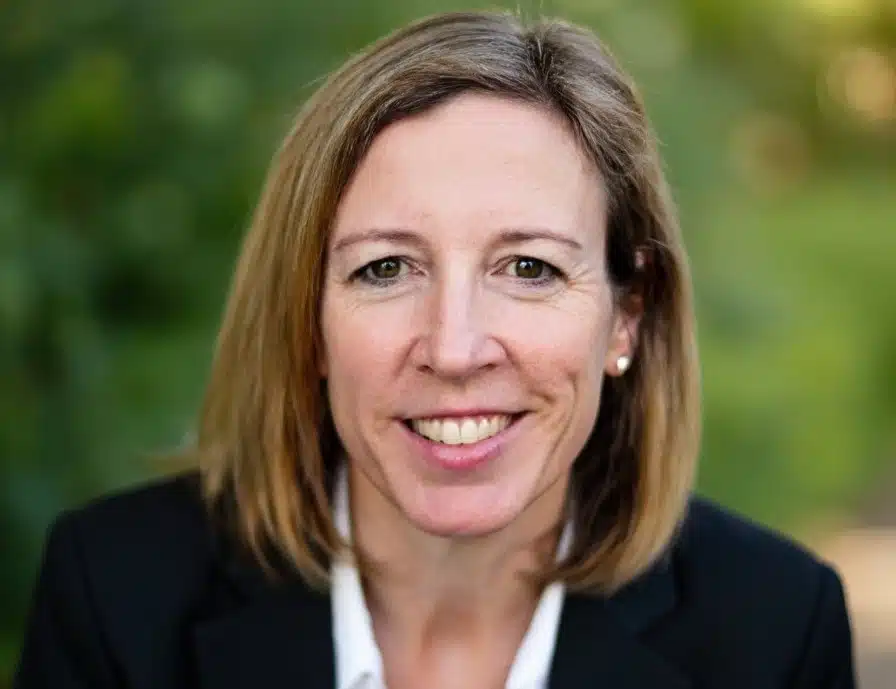Technology will change the way we work, and leaders might see their job become even more complex
While technological advancements seem to create an avalanche of opportunities for the future of work, it is too naïve to think, everything will be easier. Liselotte Lyngsø is a futurist and a founding Partner of Future Navigator, her visualization of the future pictures a complex workspace, where time and space are thrown up into the air.
“We are going to have a Metaverse, and we are going to spend a lot of time in virtual reality. At some point we will be able to hug each other, taste and smell through our avatars and holograms, and when this happens, we will move more and more into that world,” she says.
But having a virtual dimension is going to demand a lot from leaders, who will have to navigate in a divided workspace.
“One size does no longer fit all. It becomes harder to be a leader because everything is individualized. The well-being of your employees is becoming more difficult to track, and so managers might need to ask more into the private lives of their employees showing a more empathic side.”
And the virtual future is just one of many shifts, the world is facing.
Who owns their time?
A key question for leaders in the future, is, according to Liselotte Lyngsø, going to be “who owns their time?”
“With Covid a lot of people learned that their job can be done from home or remote. That created a sense of owning your time. This will be in high demand in the future, and possibly create frustrations or recruitment shortage from those, who needs to be at a specific physical place to do their job. People such as nurses and teachers might come to feel as they are timeslaves.”
Especially the younger generations are searching for jobs, where time works for them. So, to prevent everything from dissolving and becoming too flexible, leaders need to create unity and community in the workforce.
“When employees are out of sight, it is even more important to assure, that they thrive. A company needs culture, innovation and community. It is the leader’s responsibility to make sure everything doesn´t drift apart.”
This is no easy task, Liselotte Lyngsø underlines, but just as technological advancements can make it harder to maintain a community, new tech will appear to aid just that.
A future of precision
Liselotte Lyngsø describes the future of work with one word: precision. Data will be harvested on everything.
“We are getting better and better at precising and collecting data with supercomputers and smartwatches. This is creating an individualized future, where everyone can measure, exactly what they need. Better insights will increase the chance of thriving.”
Accommodating the needs of the individuals will also result in a decrease in consumption and exhaustion. Birth control will be a thing of the past, sleep will be better, and our sense of smell will increase with up to 40 percent. But technology alone, is not the only reason, why the way we work is changing so much.
The pandemic and the great reflection
The pandemic set in motion a shift of epic proportions. More than a million danes found a new job within two years. That is almost a fifth of the population. Liselotte Lyngsø is calling this the great reflection.
”The fact that so many people found a new job is a sign of reflection. We are reevaluating our values. From going to work on autopilot, everything about how and when you are working, must be considered.”
Less and less workers are going to experience their five- or ten-years anniversary in the same position. The amount of data available will create more specialized positions.
”We are going to walk around with our skills hanging above our head ready for the taking. Many will be hired for short term projects and being an employee several places at once, is going to be normal.”
This trend will once again make jobs harder for any leader trying to create community and unity in their teams.
Network is key for the modern leader
Any great leader needs help sometimes. As the future promises even more complexity at the workspace, having likeminded peers to consult and lean on is priceless. Being a part of an EGN professional peer group provides exactly this. Centered around making each other better, our peer groups for leaders helps navigate in an everchanging world. Click this link to see, if we have a peer group, matching your needs.



